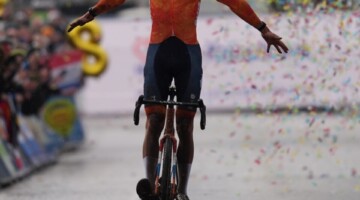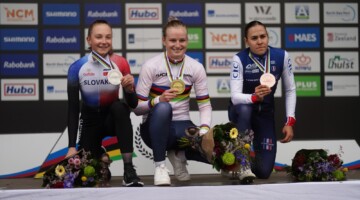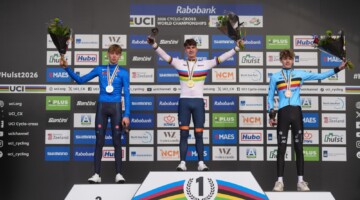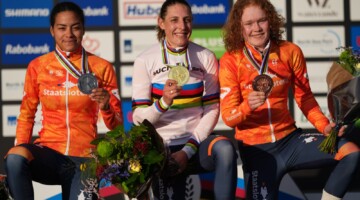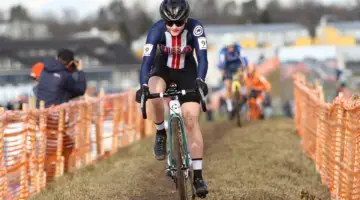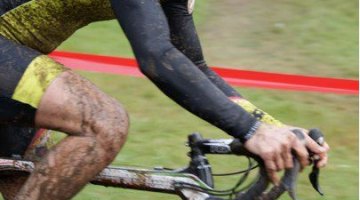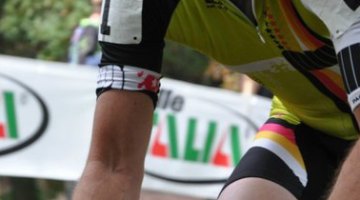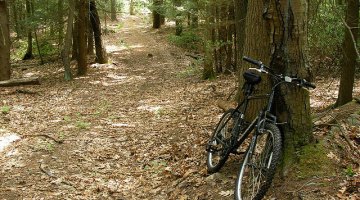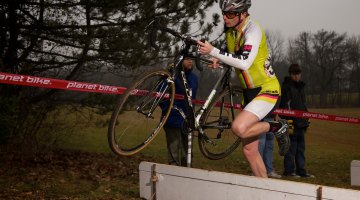Cyclocross Magazine columnist Paul Warloski profiles his return to cyclocross after a near-devastating injury. Follow Paul as he takes us along for a ride of trials and tribulations of a cyclocrosser with a refreshed perspective. If you missed it, check out Paul’s last column, When To Ignore Coach Crusty’s Program.
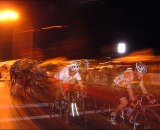
Criterium racing as training for cyclocross: a smart move for speed. Photo from flickr, fasterpandakillkill
Progress; and Why ’Cross is So Much More Fun Than Crits
It’s summer in Wisconsin, and that means a lot of criterium racing. We’re fortunate to have two race series’ here, and as a teacher, I have a bit of time in the summer to race.
The result of all the racing is that I’m definitely making progress in my recovery. I’ve felt progressively stronger as the summer has gone on. I don’t think I’ll ever be the rider I was before the crash, but I have become a different rider.
And since my season doesn’t start until September, I can race the crits as true training and not worry about results.
In June, I raced some of the Tour of America’s Dairyland. This was a masters 3/ 4 field, and a pretty strong one. At the first race in Thiensville, I was happy to sit in the field and race around in circles. I felt a little concerned about crit racing again; I certainly did not want to crash!
Since I felt pretty good in Thiensville, I went to Grafton to race. I didn’t factor into the race at all, but I stuck my nose out in the front. In the last lap, I sat up since I had no business, with the lack of sprint fitness I had, mixing it up. Still, they were two good races that were a good measure of my fitness: I had a lot of engine power, but no speed or snap.
I took one day off and then traveled to Greenbush for the road race. It was a beautiful course with some challenging hills. One thing I’ve noticed since the crash is that it takes me longer to recover after hard efforts. (I’m sure that has nothing to do with my age!)
In the warm up, I already felt very tired, as if my legs were dead. I raced as hard as I could, but I couldn’t manage the hills. So I didn’t finish that one. I knew I had given everything, so I wasn’t upset at the DNF.
We kept up the training, and I came into Superweek with better fitness. The race fields in the masters 4/ 5, though, were small and content to roll around until the sprint. Even though I lacked just a little power to stay away by myself, I kept attacking. Even in the one race I decided to mostly sit in, I couldn’t help but attack when I got bored.
I managed to finish in the top ten of every race (not as impressive when you know there were only 12 to 17 riders in each race!). I was in the sprint every race, although I had forgotten how to jump early enough.
The positive mental shift was strong. I wasn’t at all frustrated by not finishing on the podium. After several near-misses, I was just determined to go harder in the finish and learn from my mistakes. I wasn’t motivated by failure; I was motivated to win. And on the last day of Superweek, I was a little tired and scheduled to start my rest week. I balanced my desire to get a podium with my lack of desire to race one more race that wasn’t on my ’cross bike.
Crits at this level are boring to me. There aren’t many tactics: every attack is chased down, then we just ride around at a moderate pace until the sprint. I tried to at least make the racing hard on myself by riding at the front often or attacking constantly. I came out of the block of racing — six Superweek races in ten days — with a renewed sense of confidence and optimism. My legs felt tired for a day or two, but I’m back on it now.
All the racing on the road is fine. But I just can’t wait for ’cross season to begin. ’Cross racing is more elegant, more powerful. Barring mechanical issues, the strongest rider usually wins. And as the race develops and breaks up, you ride at your own pace. Riding hard gets results in ’cross racing, while in crit racing, you’ve just burned a match. It’s a different mentality: instead of waiting for a sprint, you just go.
So the road bike is put away, and the commuter bike has re-evolved into my ’cross bike until the team bikes arrive. I’m rested after the race block, and we’re starting the specialization phase of training. I get to ride on the grass and trails, practice dismounts and remounts, run with my bike up hills.
It’s going to be an awesome season. Thanks for joining me.

